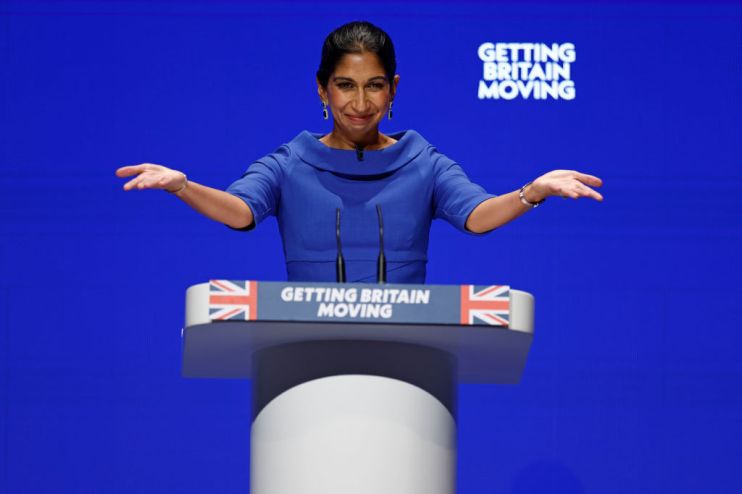Curbing foreign students coming to the UK is a short-sighted act of self harm

The Home Secretary, Suella Braverman is a hard-liner on immigration just like her predecessor Priti Patel. Over the past weeks, she’s used each of her public appearances to show she’s willing to go further.
She has a clear policy aim: bringing the net number of immigrants down. She sees migrants as one uniform group, so it doesn’t matter whether they’re skilled or unskilled: she doesn’t want them, full stop. Just a month in the post, and she’s already said she has “reservations” about a trade deal with India because it would mean more Indian immigrants. She’s claimed she’ll make it impossible for people entering the country illegally to seek refuge – something likely to breach the United Nations Refugee Convention. And she’s targeted international students, saying we have too many of them.
Much of Braverman’s plans contradict the government’s stated intentions. While Health Secretary Therese Coffey acknowledges the need of getting more overseas doctors and nurses in the NHS, Braverman promises to crack down on immigration. Truss has been eyeing a trade deal with India for a while, yet Braverman is not convinced. “The narrative from the Home Office is much more resonant of the days when Theresa May was Home Secretary”, says David Laws, executive chairman of the Education Policy Institute. Strong anti-immigration views and a pledge to cut the number of international students were priorities under May but largely fell away under Johnson.
There’s no discipline in the Conservative ranks, and no clarity on a united message. This not only shows a party in disarray; it exposes an ambitious politician drumming up anti-immigration policies to further her own place in the Commons benches.
But if one thing was clear under Patel, solving the conundrum of Channel crossings is one of the few unifying things behind current Conservative ideology. Sending migrants to Rwanda was one of the few tangible policies brought in under the Johnson administration, and even the most liberal of the Tory leadership candidates supported it. So, for that purpose, perhaps Braverman is what Truss needs. But the Home Office’s mandate is vast, and requires vision and a capacity to think long-term.
Instead, Braverman’s comments about international students are a tangible example of short-sightedness. She accused this group of exploiting their student visas to bring relatives or partners with them. She’s said too many take “substandard courses in inadequate institutions”.
Universities are the jewel in the crown of this country. Every year, they attract thousands of intelligent, ambitious people who contribute to the economy by paying tuition fees and spending money on food, accommodation and leisure. Some leave after their studies – but they leave with a tie to the UK, which means potentially future trade and commercial links. Others stay, get jobs, pay taxes to the British government and make up part of the incredibly diverse population of this country. If this doesn’t contribute to growth, what does?
The number of relatives or partners that come to the UK with international students has indeed gone up, according to Marley Morris, associate director for migration at the Institute for Public Policy Research. But this follows the number of international students themselves going up – aside from a little slump during the pandemic – and there is no publicly available evidence that the system has been abused or “exploited”. “It’s not a major route for people because it’s quite specific”, Morris says.
The complaint of international students taking “substandard” courses is also puzzling.
This is likely not about those students flocking to Oxford, Exeter and LSE, but to universities like London Metropolitan or Westminster. These universities are far from sub-par but they tend to take students from lower economic backgrounds, people retraining and older students, so they have lower entry requirements. They also tend to be the institutions with less funding. Fewer international students could mean fewer people in their classrooms – less and less and less, until classrooms are empty and teaching is not economically sustainable anymore.
As we saw under the Patel era, just because the Home Secretary says something, it doesn’t make them immediate policy. But a cull on international students will rightly worry universities, it will hurt their allure, and their budgets.
Ultimately, whether it’s Chinese students or Indian nurses, the government would be better off finding a common narrative. Immigration is a complex, evolving, crucial policy area. Simply putting on the “bad cop” hat won’t bear results. If Suella Braverman doesn’t understand this quickly enough, she’ll end up like her predecessor: another broken engine in the dysfunctional Home Office machine.